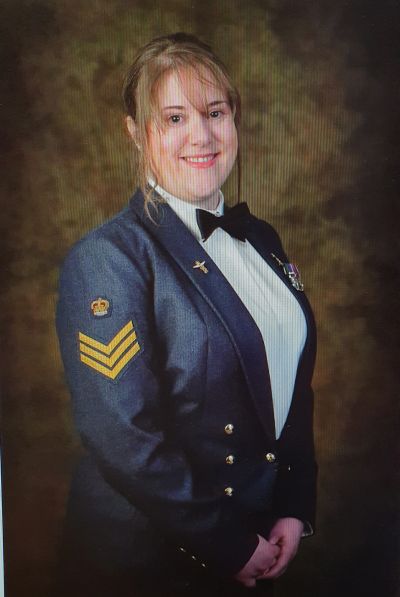“If you think you know everything, you won't learn anything”
Case Study: Emma Ludlow
We recently spoke to Emma Ludlow, Emma joined the RAF in 2002. Now, a Health and Safety Manager at HealthHero Integrated Care, she tells us how she found the transition from the forces to a career in health and safety.

Emma, tell me about your career in the RAF.
I joined the RAF in 2002 as a Pharmacy Technician. I think I joined because both my parents were in the Navy, and it was just something that my Dad suggested to me when I was doing my A Levels.
I was interested in getting out and travelling so it seemed a logical step to me. I worked as a Dispensary Manager, but most of my career I worked in medical logistics. I left because I didn't really have a choice. My 22 years were up, and they weren't extending contracts for our trade, so I was off!
Did you know what career you wanted to transition into after your time in the RAF?
Towards the end of my 22 years, I did a lot of work in healthcare governance and audit, so with that experience plus IOSH qualifications, it made sense to move into a health and safety type role.
I applied for my current job 6 months before my exit date, not expecting to be interviewed because of this. I explained I would like to be considered for any future positions. Luckily, they called me and said they would like to interview me, and then a week later I was offered the job of Health and Safety Manager.
I was given the job on 23 December 2023 and started on 5 June 2024. Once I knew I was going into a career in health and safety, I used my resettlement to sign up for the NEBOSH National General Certificate in Occupational Health and Safety, the NEBOSH HSE Certificate in Managing Stress at Work and NEBOSH IIRSM Certificate in Managing Risk.
Did you use your Enhanced Learning Credits (ELCAS) to fund your NEBOSH qualifications?
Once I was offered my new job as Health and Safety Manager, I looked at the courses available as part of Resettlement. I saw there was the NEBOSH National General Certificate, but they were in three locations that were nowhere near to me and it took a week; as a single parent, I was a bit stuck.
I spoke to the learning advisor at Brize Norton and said I wanted to do NEBOSH but as distance learning. They said as long as I could find courses I wanted all through the same Learning Partner I can do as many as I would like. So, I arranged for the NEBOSH National General Certificate, the NEBOSH HSE Certificate in Managing Stress at Work and NEBOSH IIRSM Certificate in Managing Risk through the same provider to maximise the ELCAS grant. The transition was easy once I knew what I was going to be doing once I left the RAF.
How have NEBOSH qualifications helped you progress in your current role?
When I first started my role, it was a very steep learning curve! Not only moving into a purely health and safety role, but also because the last time I was a civilian I was doing my A Levels - it's a bit of a culture change!
But doing the NEBOSH qualifications was really helpful, I knew the basics from doing IOSH and being a Senior Non-Commissioned Officer (SNCO) that had to ensure health and safety tasks had been completed, but every stage of the NEBOSH I found new things I had to consider, and specific checks that were needed for my organisation. I was able to go more in depth with risks and prioritise the tasks on my action plan better. I am lucky that I work for a great company who value my contribution and input, but having the NEBOSH gave that extra authority that demonstrated I had the knowledge to back up my submissions.
What is the best piece of advice you have been given throughout your career in the forces?
I was told when doing my pharmacy trade training in the RAF that you don't have to know everything, and it is impossible to know everything, you just need to know how to find the answers. I stick to that every day. If you think you know everything, you won't learn anything, which can be dangerous when you work in a role that evolves and involves the safety of people around you. Even if I think I know something, I will always look for that piece of legislation, or guidance to back me up.
